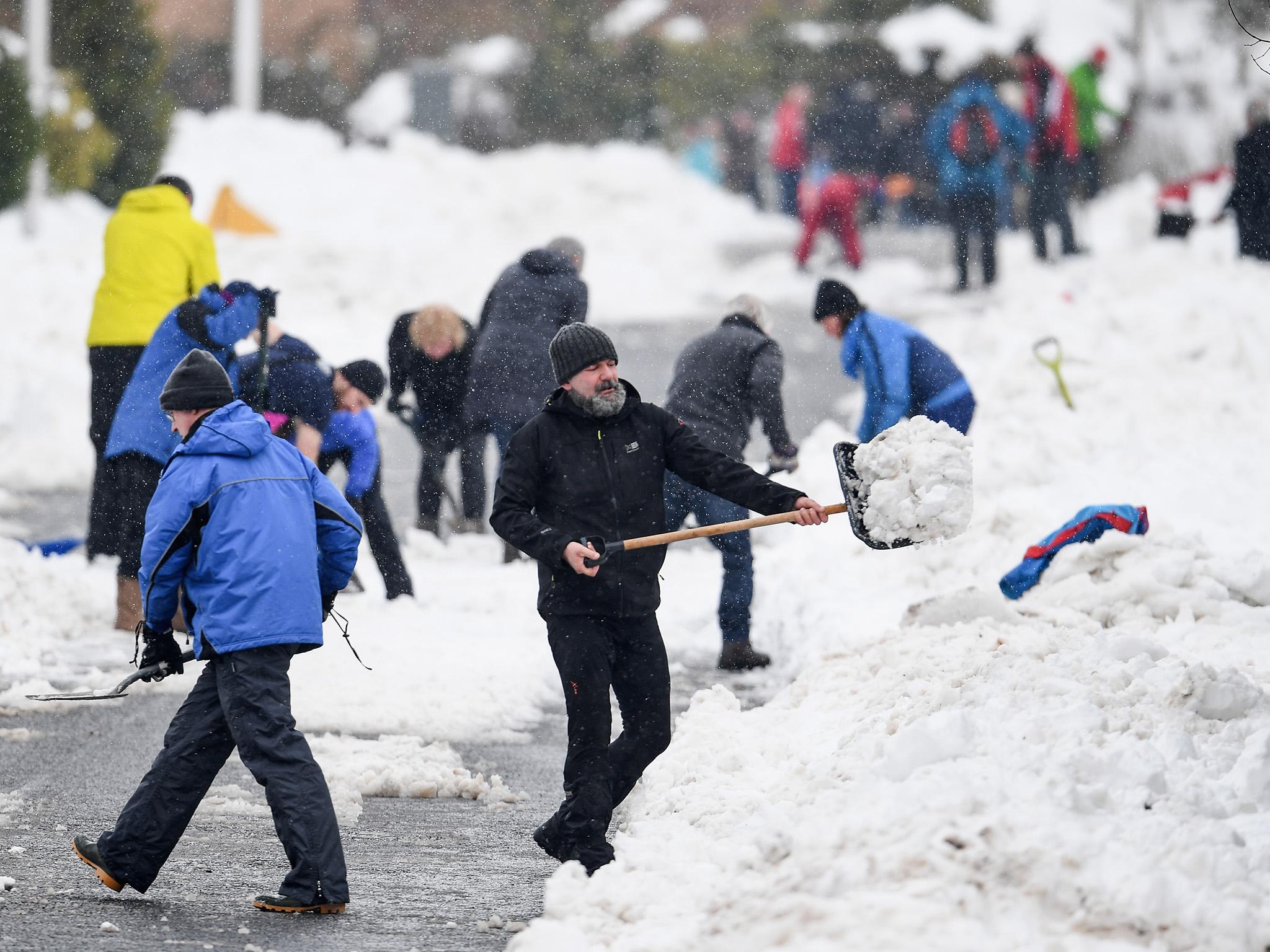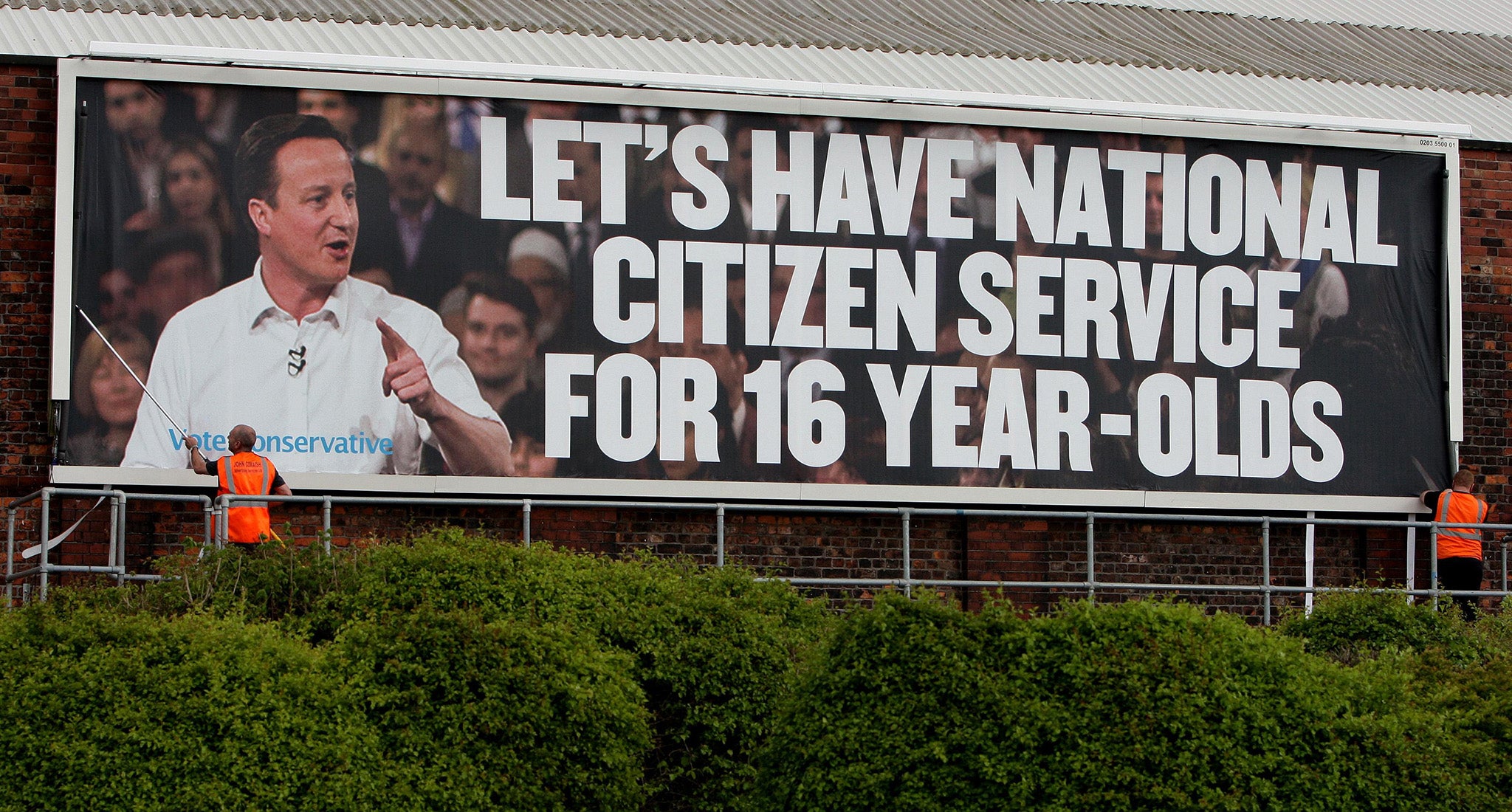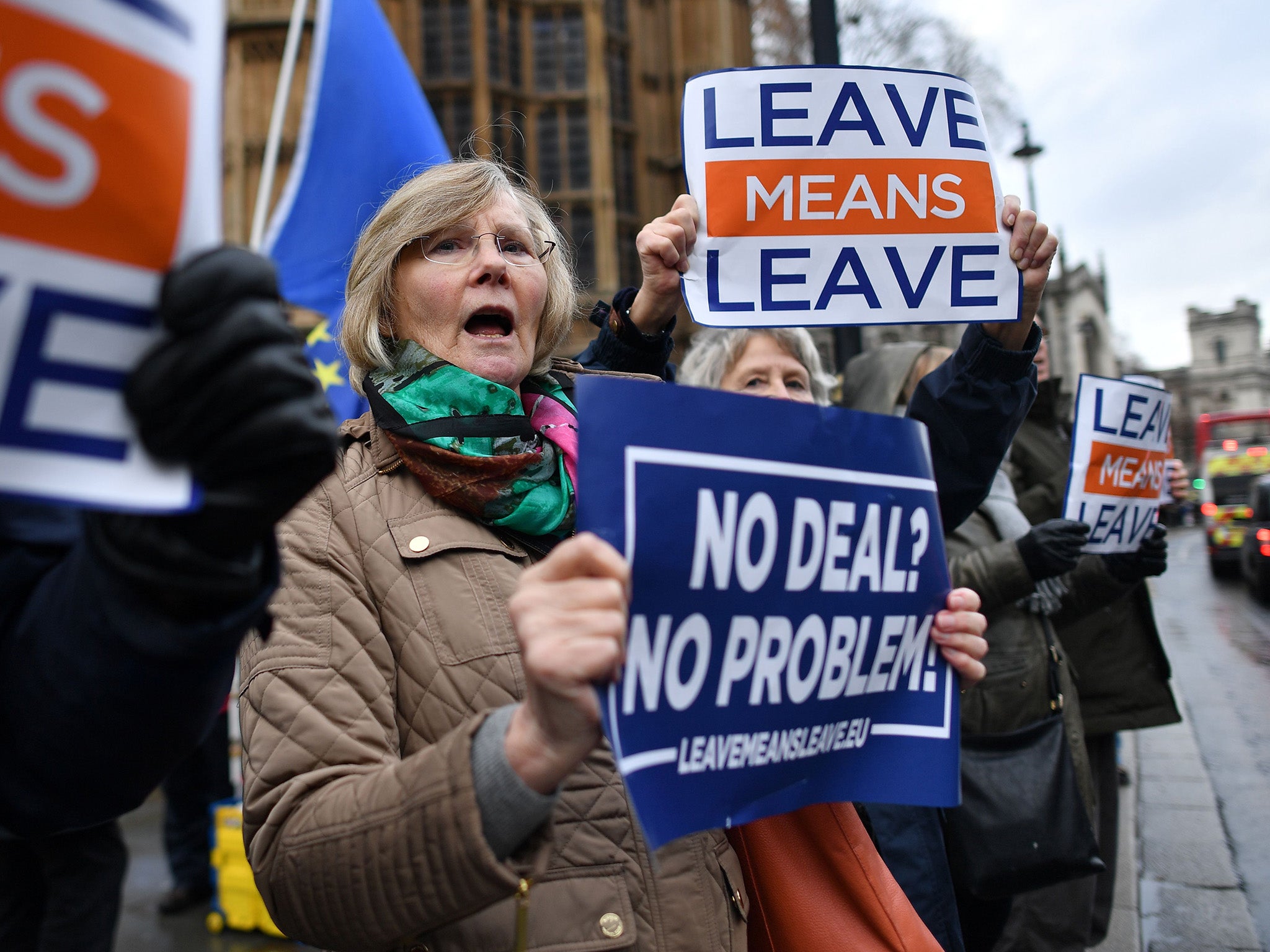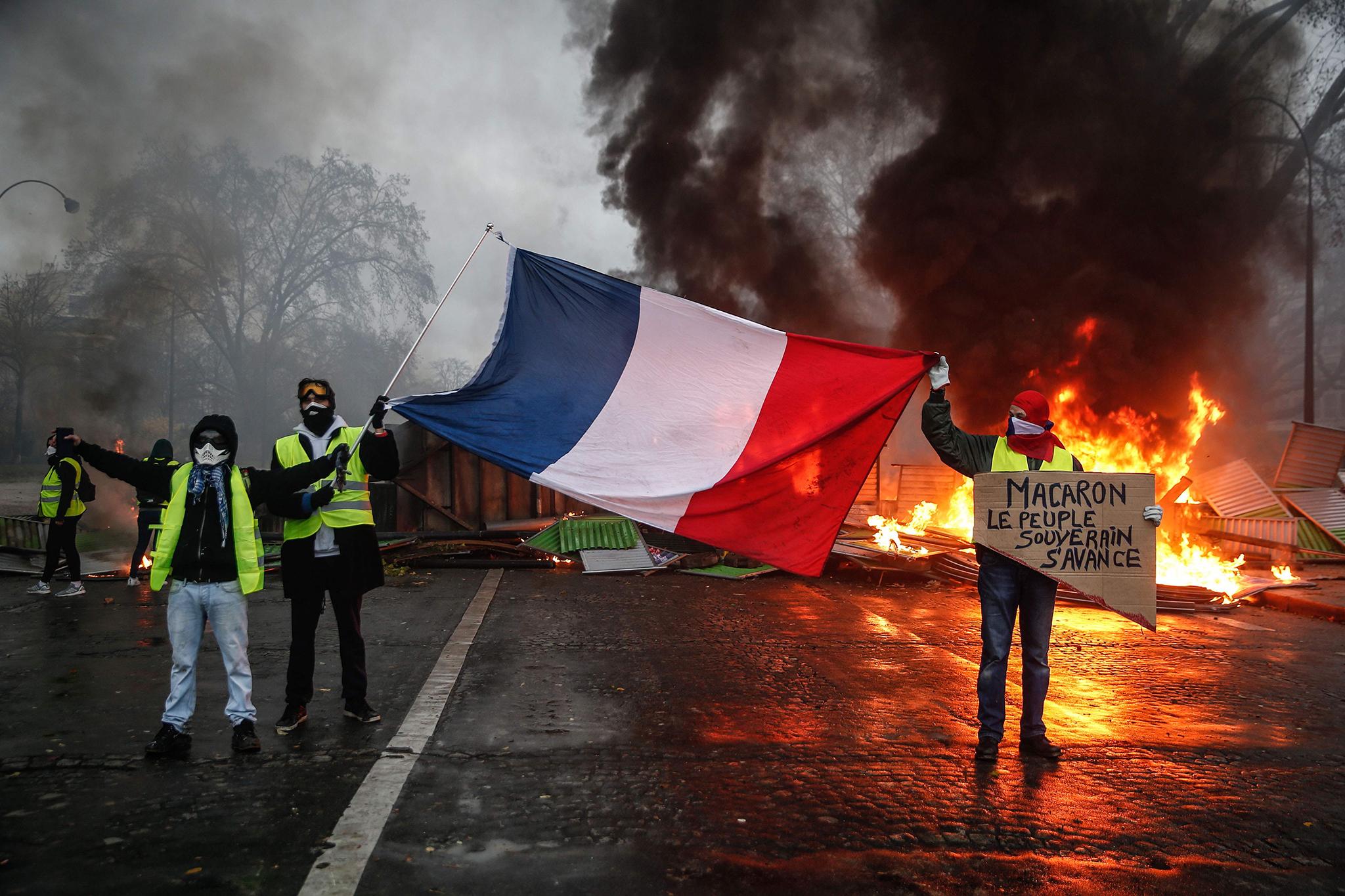Towns are split, streets are at loggerheads, families are divided: Is society finally broken?
Talking about the collapse of society conjures up images of a Mad Max-style post-apocalyptic desert; a year ago that would have been something to laugh at but with talk of stockpiling food and medicines and ports grinding to a halt, David Barnett admits it’s no longer a laughing matter


Your support helps us to tell the story
From reproductive rights to climate change to Big Tech, The Independent is on the ground when the story is developing. Whether it's investigating the financials of Elon Musk's pro-Trump PAC or producing our latest documentary, 'The A Word', which shines a light on the American women fighting for reproductive rights, we know how important it is to parse out the facts from the messaging.
At such a critical moment in US history, we need reporters on the ground. Your donation allows us to keep sending journalists to speak to both sides of the story.
The Independent is trusted by Americans across the entire political spectrum. And unlike many other quality news outlets, we choose not to lock Americans out of our reporting and analysis with paywalls. We believe quality journalism should be available to everyone, paid for by those who can afford it.
Your support makes all the difference.When the first snows of this winter set in, I am ready. I have a shovel, and a couple of bags of grit. I live in a large-ish village in west Yorkshire, very hilly, and snow here brings things grinding to a halt. Indeed, it’s impossible to get out of our street if there are more than a couple of inches on the ground.
Thank heaven, then, for the Snow Patrol. The Snow Patrol is comprised of a core of three retired gentlemen on my street, Geoff, Simon and Trevor. And though I am far, far from retirement age (and, conversely, seeming to get further away from it with each passing year), since I started working from home a few years ago I have been co-opted, at least as a junior member, into the Snow Patrol.
The Snow Patrol embodies the thing what we might call society. A group of individuals coming together for the common good, employing personal resources (shovels, rocksalt, time) to help the whole of the street by clearing the entire road down to the main highway, enabling those who are not retired or working from home to actually get out of the street.
Nobody pays the Snow Patrol. Nobody asks them to do it. They don’t do it for thanks or kudos or reward. Everyone could easily just be responsible for their own driveways and paths and the bit of road outside their own house. But this is what makes us human, a tiny little act that benefits the wider community. An example of society at work. Society is defined as a group of people who are joined together by common aims, or religion, or political beliefs, or – more commonly – simply by all living in the same place and adhering to one mode of governance.
As we enter 2019 it feels like the ties that once bound us together, even those of us on opposite ends of the political spectrum, seem to be loosening and carrying less weight
Society in democratic countries like Britain has always been exemplified by opposition, and debate, and polarised opinions, weight given to one or the other side thanks to the will of the people through voting. But society seems more fractured than ever before, and as we enter 2019 it feels like the ties that once bound us together, even those of us on opposite ends of the political spectrum, seem to be loosening and carrying less weight.
The odd thing about society is that we created it, and then threw ourselves on its mercy. We developed it and then submitted to it, allowing it to rule our lives. Naturally, governments have always shown a keen interest in the concept of society – it does, after all, keep them in a job. Successive prime minsters have been keen to hammer home the idea that they and their parties are all about the society that voted them in and will hopefully vote them in next time round.
A little under a year ago, Theresa May gave a speech to the Charity Commission in which she spoke of “the shared society”, where the injustices she highlighted – poverty, inequality, lack of support for mental health sufferers – would only be solved by everyone else pulling together. A nice sentiment, of course, but when your party’s austerity politics is being blamed for exacerbating all those things, it’s perhaps a little rich to be telling everyone else that it’s their job to sort out the mess.
Speaking of messes, let’s go back to David Cameron, May’s predecessor and the man who instigated Brexit. Before Cameron left government to, as actor Danny Dyer so memorably put it, bugger off to sunnier climes to put his trotters up, he was also big on society. The Big Society, in fact, which was Cameron’s particular buzz-phrase for the 2010 general election campaign, and which aimed to appeal to voters by promising to take the power out of the hands of the faceless Whitehall mandarins and give it back to the people.

Tony Blair was all about the Strong Society. Making a speech to parliament upon winning his second term of office in 2001, he talked of building “a society where we bind generations and communities not split them asunder”. He said that Labour had “inherited a Britain where the very idea of society had for years been battered and derided”.
Which brings us rather neatly to Margaret Thatcher. Thatcher is oft-quoted as declaring: “There is no such thing as society.” Which she did, in an interview with Woman’s Own magazine in 1987. But Thatcher’s statement wasn’t just a bald one without context; it was part of a greater attack on those who claim benefits without, in her view, contributing to society as well.
Her full quote is, “…they are casting their problems on society and who is society? There is no such thing! There are individual men and women and there are families and no government can do anything except through people and people look to themselves first. It is our duty to look after ourselves and then also to help look after our neighbour and life is a reciprocal business and people have got the entitlements too much in mind without the obligations, because there is no such thing as an entitlement unless someone has first met an obligation.”
They are casting their problems on society and who is society? There is no such thing as society ... there is no such thing as an entitlement unless someone has first met an obligation
Of all the buzzwords and thinktank phrases and sentiments trotted out by recent prime ministers on the subject of society, it is perhaps Thatcher’s which, more than 30 years on, has most resonance for the coming year. Because have we become complacent about the idea of “society”? Do we take for granted the idea that we’re – to coin another prime ministerial phrase – all in it together? Is the idea of the collapse of society so abhorrent that we’ve not noticed the possibility that it’s actually creeping up on us?
Why is 2019 more likely to see the breakdown of what we think of as our society as opposed to this year, or last year, or the year before that? Because of Brexit, of course, and the key date of 29 March, when Britain is due to leave the EU at 11pm sharp. Though the situation is so fluid at the time of writing, that anything could happen.
But whether Brexit goes ahead as planned or not, the very idea of it has caused great fissures in our society. We perhaps try to paper over the cracks, put the hostilities on hold for the Christmas period, but they’re deep and shifting and not going to go away so easily. And these aren’t hostilities between societies, they’re hostilities within society. Lines of battle are drawn, primarily, on generational grounds; the majority of younger people voted Remain – and many more would have if they had been of voting age. The bulk of older people voted Leave. Towns are split, streets are at loggerheads, families are divided.

A recent survey revealed that the majority of Remainers aged 18-34 would happily see pensions cut if it meant that move could somehow stop Brexit; on the flip side of the coin, a large proportion of older voters believed that lower wages for young people was a fair price to pay for Brexit going ahead.
It’s nothing short of a Civil Cold War.
Talking of the collapse of society conjures up images of a Mad Max-style post-apocalyptic desert; perhaps a year ago that would have been something to laugh at. But with the government talking about stockpiling food and medicines and the ports grinding to a halt, it’s perhaps no laughing matter any more.
But it doesn’t necessarily take the end of the world to precipitate the collapse of society. Society, remember, is about everyone working together for the common good. But when 52 per cent of society believes in one thing so fundamentally opposed to the other 48 per cent, how can that be anything other than a schism in society?
And when the majority, albeit a slim majority, loses faith in the state, is that not another example of society cracking just a little bit more?
And within the Brexit puzzle box is another conundrum. Increasing numbers of those who did vote for Brexit are now troubled; what they appear to be getting is not what they thought they were voting for. Many Leavers feel lied to. Many are disturbed that what they were asked to vote on simply hadn’t been explained or thought out properly. Yet more are facing the dawning realisation that the immigration debate which I know from personal experience informed many a Leaver’s vote has seemingly just melted away, replaced by dark talks of chaos and cuts affecting the very people who voted this thing in.
And when the majority, albeit a slim majority, loses faith in the state, is that not another example of society cracking just a little bit more? Not just losing faith in the government, because that happens all the time, and that’s why we have general elections. But disillusionment with the mechanics of government, the very system of governance on which our society is built. What is the point of taking part in the democratic process when the thing you vote for turns out to be utterly, irrevocably, impossible to implement?

Revolutions have happened for less.
This past week, we’ve seen something like a revolution in France, with the Yellow Vest protests that have seen running battles on the streets of Paris. What started as a protest against fuel tax spiralled into anger at, well, pretty much everything. And like the widespread civil disruption in France of 50 years ago, the protests worked; French president Emmanuel Macron this week effectively capitulated with tax concessions and a minimum wage rise.
The right to peaceful protest is enshrined in most democratic societies, but when it spills over into violence, as the Yellow Vest riots did, then that is a strong signal that the normal societal process is broken, or not working.
Perhaps when that happens, when society is on the brink of collapse, it doesn’t wither and die. It reinvents itself, it rearranges its boundaries. The Yellow Vest protests saw disparate political groups coming together in one cause, against a common enemy of the government. The government was no longer embedded within society, it was something outside, the target of society, or at least the society that came together as the Yellow Vests.
Unlike the strikes and riots of May 1968, the Yellow Vest action was enabled by and fomented on social media, something we didn’t have even a decade ago but which is all pervasive now
Unlike the strikes and riots of May 1968, the Yellow Vest action was enabled by and fomented on social media, something we didn’t have even a decade ago but which is all pervasive now. And on social media we see more evidence of society shifting and reassembling. Like-minded people are brought together, no longer bound by geographical limitations. Global societies are forming, formed of individuals who might never see their neighbours, might never take part in events in their street or town, might feel no affinity with another person in a 50-mile radius, but who are part of a network, a community, with no limitations imposed by territories or governments.
That has its pros and cons. People who perhaps feel isolated are given a sense of community. But there’s also the fear of living in an online echo chamber, where you’re only exposed to like-minded viewpoints.
Indeed, that’s become something of a new element of political and societal engagement in late 2018, that’s likely to gain momentum next year. The idea of listening to opposing voices has always been a part of democratic societies; Evelyn Beatrice Hall’s oft-quoted and regularly misattributed line, “I disapprove of what you say, but I will defend to the death your right to say it” has been a staple of robust political debate for more than a century. No more. Young people are increasingly not wanting to give their opponents a voice, not wanting to hear both sides of the argument, especially with regard to views they feel are abhorrent. Controversial figures are regularly “no platformed” and removed from public events.
That’s perhaps why the biggest split in society is on generational lines, the much-discussed conflict between the Baby Boomers born in the post-Second World War years and the Millennials and younger people. Even perhaps the most radical Boomers sought changes to the existing system, but still wanted to operate within a recognisable framework. Younger generations who were born into the internet age question why things need to be done the same way, are more connected via their phones than they are with their physical communities.

The older generations achieved change by voting, by protest, by debate. They operated within the framework of society. Younger people are not just asking if there’s another way, they’re going ahead and doing things differently, and possibly in ways which older people just do not understand.
Margaret Thatcher’s words about society ring truer than ever as we approach 2019, but not in the way she would have anticipated or wanted. She was talking about the individual, and their belief that the state should provide for them, without them necessarily giving anything to the state first. That has been turned on its head for many people. Now it feels like the state itself has the sense of entitlement, that it expects us to do things as we’ve always done. But, increasingly, people are asking whether the state is meeting its own obligations to us.
“There is no such thing as an entitlement unless someone has first met an obligation,” Thatcher said. Austerity politics, the inexorable underfunding and dismantling of the NHS, woeful public transport infrastructure, poverty, inequalities. Is it any wonder people are becoming more and more disillusioned with the system?
When it snows, I’ll probably be out with my shovel and grit, because even if society is a busted flush, there are some bits of it that are worth keeping in whatever new order arises
Governments will continue to use the idea of society as a major manifesto point, but the problem is that they no longer have any idea what society really is, and very often they’re merely putting the onus back on “society” to pick up the slack in areas they’re utterly failing in. Maybe in the coming months we’ll really see how broken our old idea of society is. But we might also see a new, dominant form emerge.
When it snows, I’ll probably be out with my shovel and grit, because even if society is a busted flush, there are some bits of it that are worth keeping in whatever new order arises. People working together for the common good is certainly one of them, and it is to be hoped that basic human decency will trump any notions of our fluid and constantly changing society.
Join our commenting forum
Join thought-provoking conversations, follow other Independent readers and see their replies
Comments